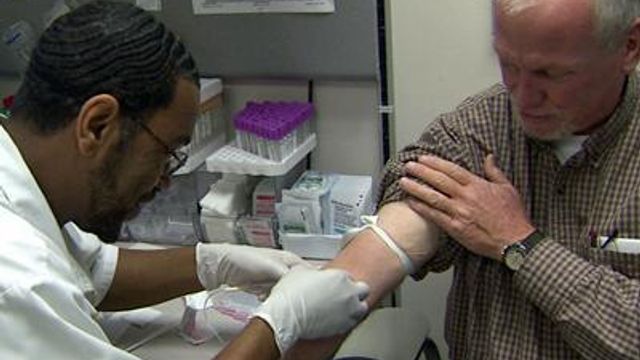Health Team
Researchers use colon tumors' genes to predict recurrence
The research could also lead to newer drugs tailored to specific tumor types, Dr. Katherine Garman, a Duke gastroenterology fellow, said.
Posted — UpdatedDURHAM, N.C. — Duke researchers now have a model for predicting the risk that early stage colon cancer will recur. It may also be used to predict a patient’s sensitivity to different types of chemotherapy.
Though the model isn’t in clinical trials yet, researchers hope it may one day help patients beat the odds as they fight cancer.
Frank Walters, 55, of Lynchburg, Va., learned three months ago that he had stage three colon cancer.
“It was close to penetrating the colon wall, but it hadn't penetrated yet,” Walters said.
Walters had surgery to remove the tumor, but then started fighting the odds of the cancer returning.
Dr. David Hsu, a Duke University Medical Center oncologist, said that without chemotherapy, the recurrence risk is as high as 60 percent.
Though Walters is receiving chemotherapy, his risk of recurrence is still as high as 20 percent.
“We need to do a better job of figuring out what a better treatment for these patients is,” Hsu said.
Dr. Katherine Garman, a Duke gastroenterology fellow, is leading a study looking at the genetic expression of colon tumor samples. She has found patterns that place some patients at a higher risk.
“For the patients who are likely to have recurrence, (we can) actually choose specific therapy that we think will be most effective for them,” Garman said.
Hsu said “specific proteins and pathways” are important in how a tumor grows and develops.
The research also could lead to newer drugs tailored to specific tumor types, Garman said.
Duke researchers are also looking at the genetic makeup of tumors in breast cancer.
• Credits
Copyright 2024 by Capitol Broadcasting Company. All rights reserved. This material may not be published, broadcast, rewritten or redistributed.






